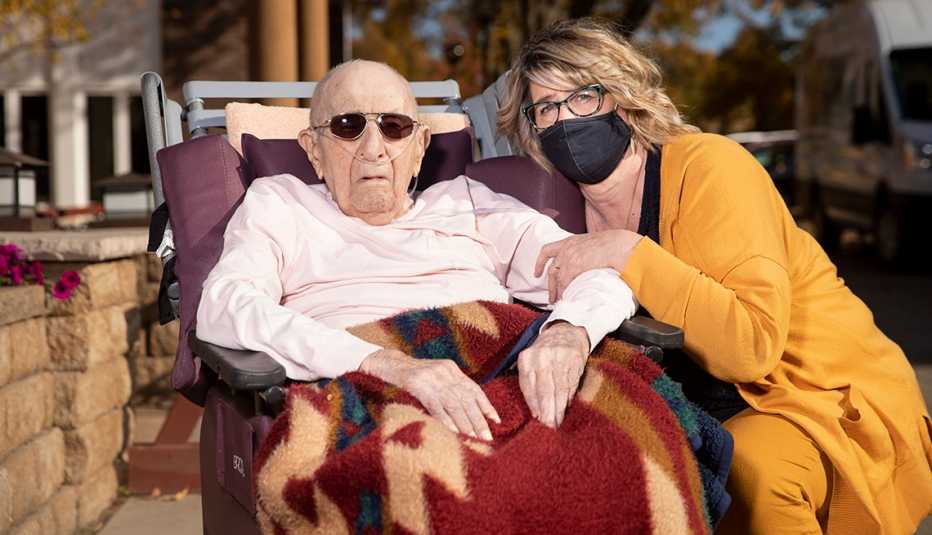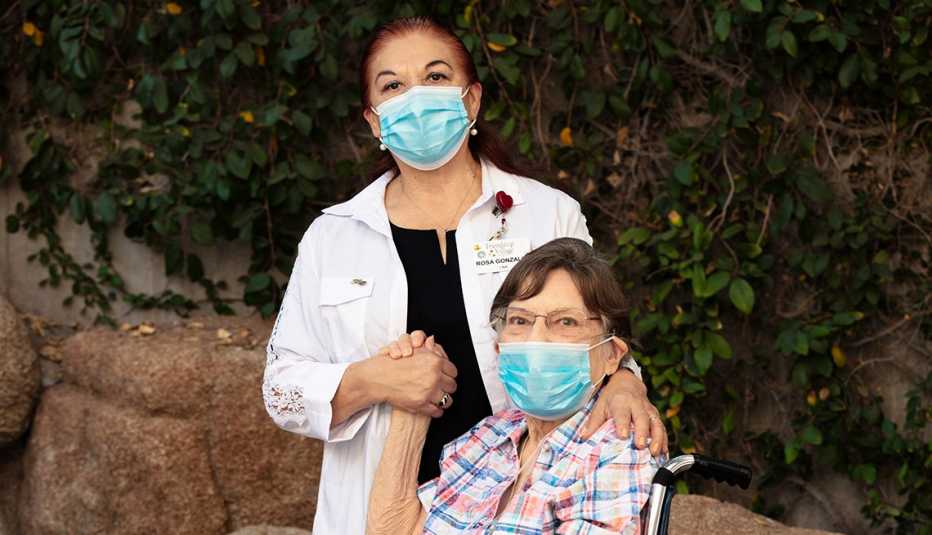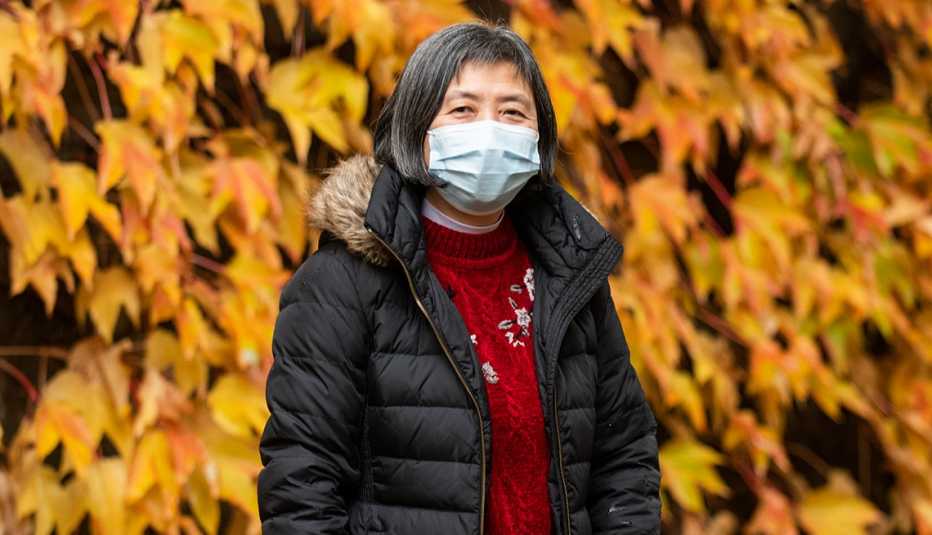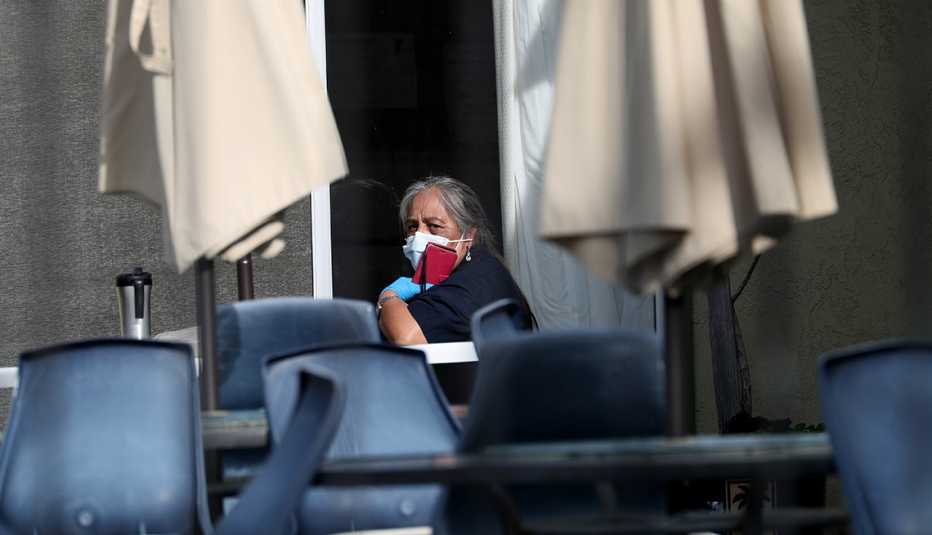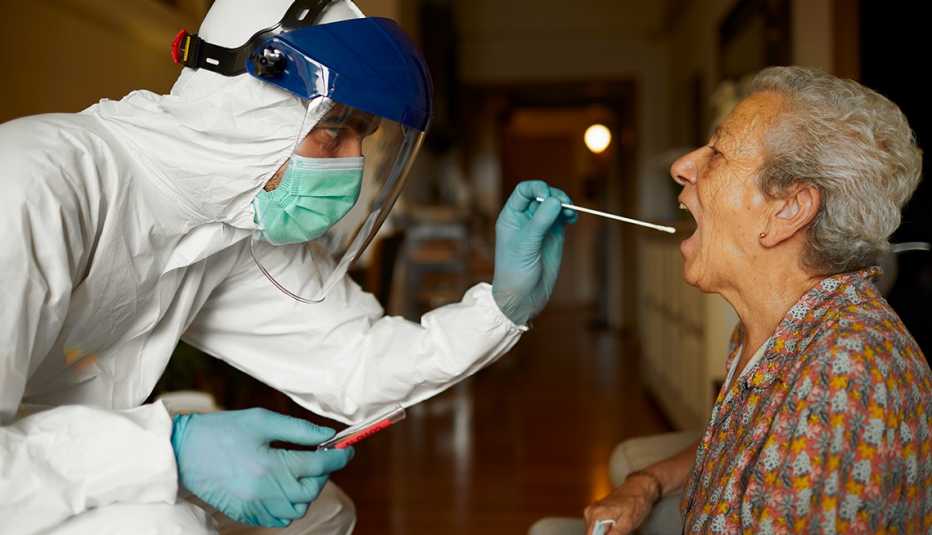Staying Fit
While hospital workers fighting the COVID crisis have justifiably been called out for recognition, those serving on the frontline in nursing homes have remained, for the most part, in the shadows. But they, too, have put their lives at risk to protect the most vulnerable — people who often feel like family. They have become lifelines for residents and their loved ones, offering comfort and connection at a time marred by crisis, fear and death. Many nursing home workers have saved lives, refusing to leave their jobs even as their workplaces became epicenters for infection, with long-term care facilities claiming 40 percent of the country's COVID deaths — representing more than 90,000 victims. And many workers have been infected themselves. More than half of the nation's 15,000-plus nursing homes recently reported at least one COVID infection among staff, according to a recent AARP analysis.


AARP Membership— $12 for your first year when you sign up for Automatic Renewal
Get instant access to members-only products and hundreds of discounts, a free second membership, and a subscription to AARP the Magazine.
The pictures below showcase those workers — and the residents who’ve called them out for their service. The video above tells the story of Sofia Metovic, the director of dining services at the Selfhelp Home in Chicago. After that nursing home shut its doors to non-essential workers because of COVID-19, Metovic began running its beauty salon. She washes and styles hair, paints nails and applies makeup, making conversation and connections at a time when many residents feel desperately isolated.
A Nursing Assistant Who Treats Veterans 'Like Family'
Jim Evola has lived at the Missouri Veterans Home in St. Louis for nearly four years. The 71-year-old Vietnam War vet and retired postal worker has Alzheimer's disease and post-traumatic stress. At times, he can be a handful, says Iris, his wife of 30 years. But Dorothy Hicks, 46, a certified nursing assistant who's worked at the veterans home for more than 12 years, looks out for him, offering Iris constant solace. “She's just always been very attentive to him,” Iris says. “She treats the guys like family.”
Hicks surprises Evola with his favorite soda, root beer, and he responds to her voice. He doesn't speak much, but her quips make him smile. When he first got to the home, he was combative. If she came close to change him, he'd raise his fist and warn, “You better not.” Hicks learned fast to beat him at this game, raising her own fist and uttering the same warning before he could, which made him relax and grin. When the home's social worker sets up FaceTime calls between Evola and Iris, Hicks might dance around off camera so Iris is treated to her husband's smile. He's clean-shaven, well-fed and cared for, which comforts his family at a time when they can't visit. “She gets on the level of the vets when she speaks to them,” Iris says, “and looks them in the eye."

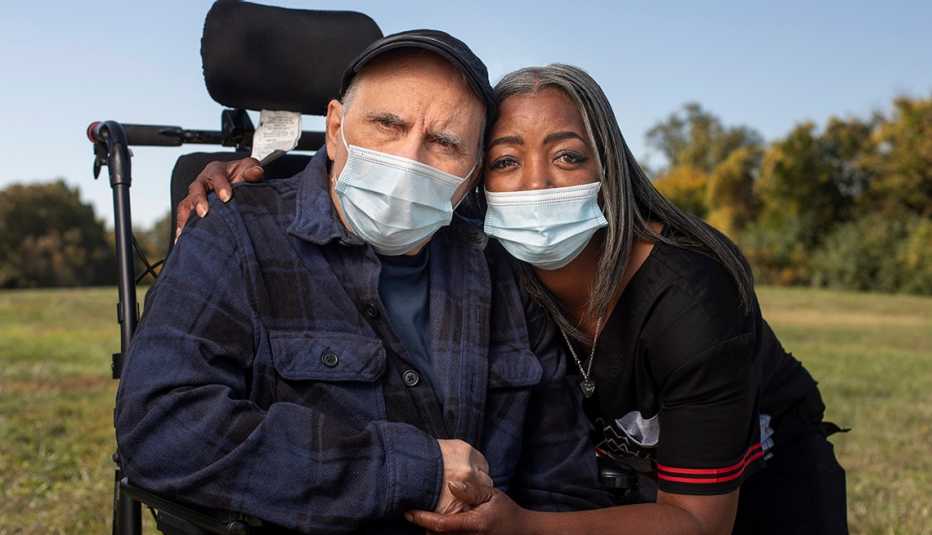
This Activity Director Embraced a Resident's Home Business

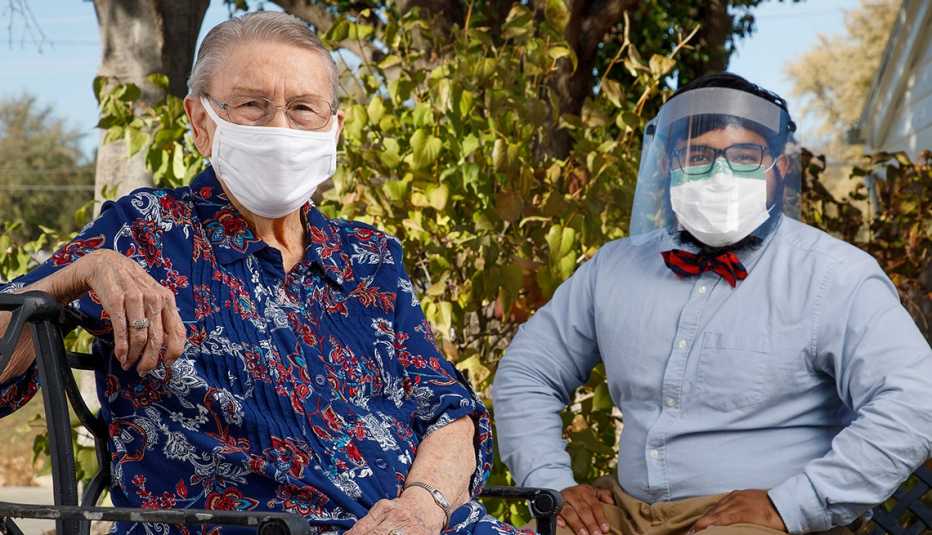
COVID concerns may have isolated Merna Priestley, 90, in her room, but she refuses to sit idle. And David Castillo, the activity director at Good Samaritan Society–Millard, in Omaha, Nebraska, makes sure she doesn't have to. “She caught my eye,” says Castillo, 26, who joined the staff after coronavirus forced the nursing home into lockdown mode. “Since she is high-functioning, we wanted to make sure that we always provided more for her, to ensure that she did not get bored."





























































